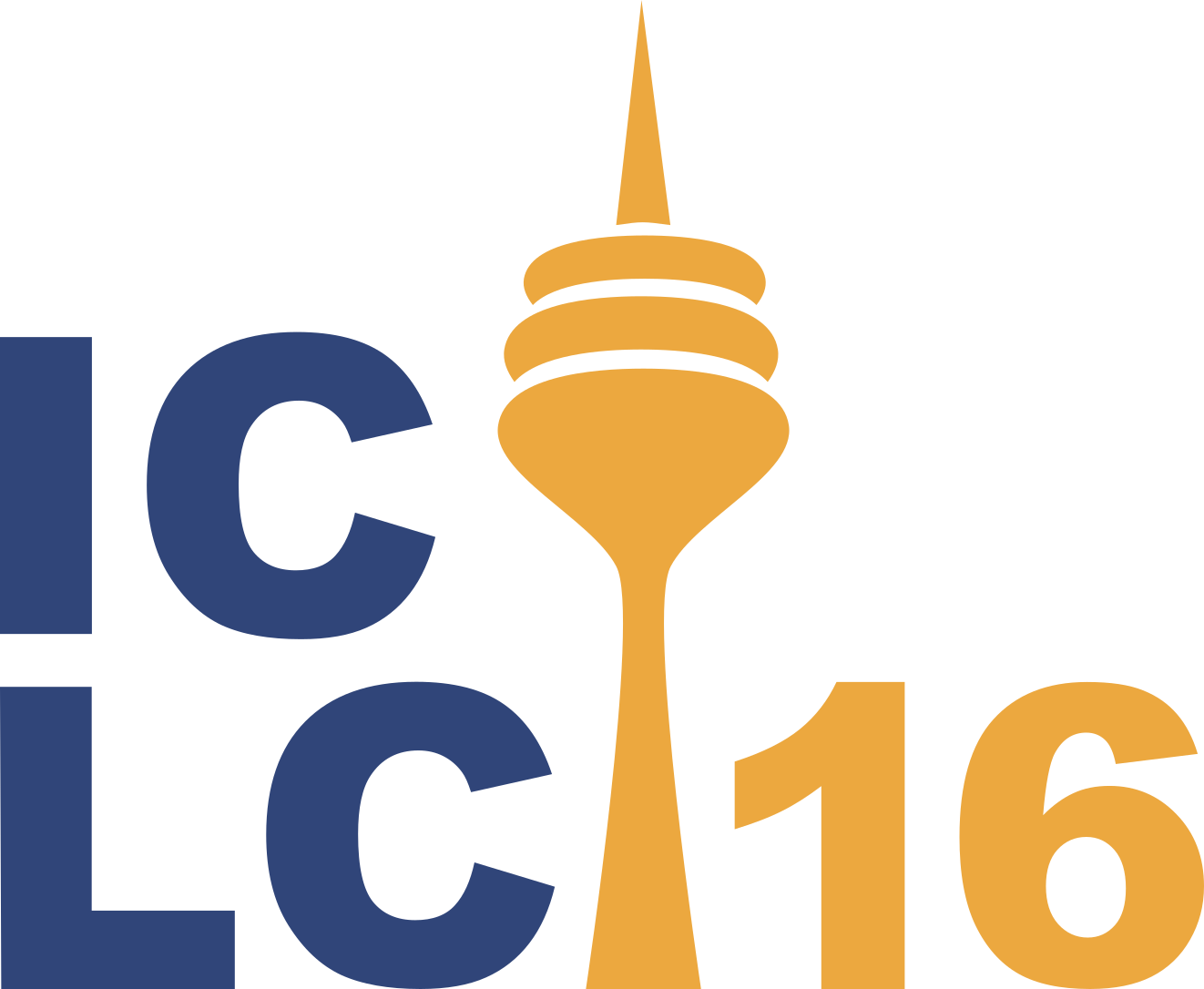Third Call for Papers: 16th International Cognitive Linguistics Conference
ICLC 16: Modeling Language and Cognition
Submission is closed. Notifications of acceptance/rejections will be sent in late February.
August 7-11, 2023
Heinrich Heine University Düsseldorf
Theme Session Proposal Deadline: October 15, 2022 November 1, 2022
Abstract Submission Deadline: December 15, 2022 January 15, 2023
Notification of acceptance / rejection: February 2023
About the conference
The 16th International Cognitive Linguistics Conference Conference (ICLC16) will take place at Heinrich Heine University Düsseldorf from August 7 through 11, 2023. ICLC is the biennial meeting of the International Cognitive Linguistics Association (ICLA), which connects scholars from various linguistic disciplines and theoretical approaches who share a cognitive-functional view of language, according to which language is seen as an integral part of cognition. In recent years, Cognitive Linguistics has become more and more interdisciplinary, combining insights from typology, psycho- and neurolinguistics, language history, and many other areas.
We invite a broad range of papers on any topic taking a cognitive, functional, typological, or discourse approach to the study of language and cognition. Typical topics treated in the conference include, but are not limited to, the following:
- cognitive grammar
- construction grammar
- constructicography
- metaphor and metonymy
- frame semantics
- prototypes and categorization
- cognitive phonology
- discourse analysis
- pragmatics and cognition
- corpus linguistics
- language processing
- neurolinguistics
- language change and grammaticalization
- cognitive typology
- motion and space
- first language acquisition
- applied linguistics and pedagogy
- language evolution
- translation and cognition
- multimodality
- sign language research
- writing systems
- cognitive sociolinguistics
- cognitive semiotics
The main topic of ICLC16 is “Modeling language and cognition”. We particularly encourage papers discussing theoretical advances in modeling linguistic knowledge from a usage-based perspective, or empirical methods that help us get a better grasp of the “grammar network” using authentic data and/or computational modeling, including constructicography and data-based developments of linguistic resources of various kinds. As usual, however, we strive at representing the full breadth of cognitive-linguistic research. In our first in-person meeting since 2019, we therefore look very much forward to vivid discussions about papers from all domains of Cognitive Linguistics.
The organization of ICLC16 is guided by the principles summarized in the ICLA Statement of Diversity and Inclusion.
All information on the conference can be found on the ICLC16 website.
The language of the conference is English.
Our confirmed plenary speakers are:
- Heike Behrens, University of Basel
- Alice Gaby, Monash University
- Thomas Hoffmann, University of Eichstätt-Ingolstadt
- Terry Janzen, University of Manitoba
- Kyoko Ohara, Keio University
- Jordan Zlatev, Lund University
For conference participation there is no requirement to be an ICLA member, but members will get a substantial reduction in the conference fees as well as enjoy other benefits (more information and member signup via the ICLA website).
The ICLA has set up a fund for student scholarships; students who have their abstracts for a poster or presentation accepted can apply for a scholarship. You can apply until March 31 using this form. More details can be found here.
Call for papers
Theme Sessions:
There are two stages for submissions for a theme session. First, theme session organizers should submit their theme session proposals directly to the conference organizers at the following address by November 1, 2022.
Theme session proposals should include: the session title, the name and affiliation of the theme session organizer, an introduction of up to 400 words (excluding examples and references) explaining the theme, as well as a list of the authors and titles of the individual papers, and all abstracts of the papers in the proposed theme session (100 words each) in a suitable order. A theme session typically consists of six to ten papers, plus an introduction by the convenors and/or a discussion session in the last slot.
We strongly encourage diversity at the level of the affiliations involved in the theme session – at least one third of the papers should be contributed by authors outside the affiliation of the theme session organizer/s. We also encourage theme session organizers to take other diversity aspects into account, e.g. by aiming at a good gender balance. The acceptance of theme session proposals will be announced by November 15, 2022.
Once a theme session has been accepted as a whole, individual theme session authors will need to submit their abstracts for review, following the same guidelines of submission for general and poster sessions below. Papers need to be individually accepted in order to form a theme session.
General Session and Poster Session:
Abstracts for general (oral) sessions and poster sessions are to be submitted through our abstract submission page, following the guidelines below. On the submission page you are asked to state whether the paper should be considered for oral session only, poster session only, or both. The deadline for abstract submission is January 15, 2023.
Each presentation slot in the general session will be 25 minutes long, including questions and discussions (20 minutes of presentation + 5 minutes for questions and discussion).
Posters will be allocated to dedicated, timetabled sessions, and will be thematically organized in terms of time and space of display.
Submission guidelines
The abstract submission page can be found here.
Abstracts should not exceed 500 words (excluding examples and references). Author names should not appear anywhere in the text (you may cite yourself as [Author] or in the third person for previously published work). Please copy & paste the abstract text into the Easychair window. A PDF file is optional at this stage. If you want to include figures or graphics, feel free to upload the abstract as a PDF and write “see pdf” in the abstract window. Theme session authors should make sure to note the title of the theme session at the top of their abstracts. References should be formatted according to the Unified Style Sheet for Linguistics Journals.
Each author may submit a maximum of one single-authored paper and one first-authored paper (or two first-authored papers), regardless of whether they are intended for the general, poster, or theme session. It is, however, possible to be a co-author of more than two submitted papers.

